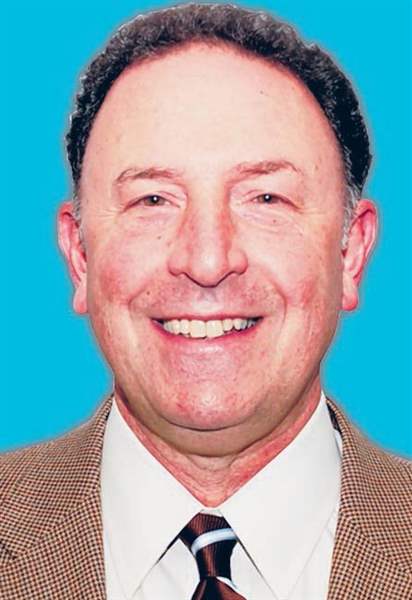
COMMENTARY
Recent evidence for causes of autism
10/10/2011
Dr. Richard Solomon, medical director of Mercy Autism Services.

Dr. Richard Solomon, medical director of Mercy Autism Services.
This is one of a series of columns about health issues written by staff members of ProMedica, Mercy Health Partners, Toledo Clinic, and the University of Toledo Medical Center, the former Medical College of Ohio.
Autism spectrum disorders (ASD), characterized by delays in language, problems with social interaction and dominating, stereotyped behaviors and interests, have been increasing at a dramatic rate of 15 percent per year every year for the last 20 years.
ASDs now affect one out of every 100 children. This astounding increase in the number of children is unprecedented. No other developmental disability is increasing as quickly. As I travel around the country giving lectures and workshops, the most commonly asked question is "Why the increase?"
First, there is no question that genetics plays a role.
Dr. Joachim Hallmayer conducted the California Autism Twin Study that was published in the July, 2011, issue of the Archives of General Psychiatry -- identical twins had a 77 percent co-occurrence rate and fraternal twins, a 31 percent (males) to 36 percent (females) rate. This confirms previous work that has identified dozens of genes that contribute to ASD. Interestingly, all the genes identified so far code for neuronal connections in the brain.
Neurons are the cells that make the brain function. In other words, the fundamental nature of autism is an under-connected brain caused by dysfunctional webs of neurons.
While genetics has been established as one contributing cause, this same article on twins determined that genetics couldn't explain everything. In other words, the environment also is implicated.
As an example of environmental risk in the July, 2011, study, researchers found an elevated risk of autism in children whose mothers took antidepressants during the year before delivery. In April, 2011, a study led by Dr. Stephanie Engel with Mount Sinai Children's Environmental Health Center on environmental risk, found that prenatal exposure to organophosphate pesticides reduced IQ in tested children. Other environmental factors being investigated include complications of prematurity, older mothers, older fathers, and having children too close together.
Progress is being made when it comes to the roles of genetics and environmental factors and autism; however, continued research still is needed in both areas.
Perhaps the most important recent news on the cause of autism is what doesn't cause autism -- immunizations. After thorough research and investigations, the Institute of Medicine (IOM) one of the most respected scientific bodies in the United States, has declared that upon review of all the evidence, immunizations do not cause autism.
Taken together, all these articles suggest that the cause of autism is in the interaction between genes and environment. The environment is pre-natal, i.e., in the womb exposure when the brain is developing or peri-natal (during or right after birth) when the brain is most vulnerable and not post-natal (i.e. not due to immunizations, diet, vitamins, allergens, etc.). In other words, a child must be predisposed genetically and when exposed environmentally then he or she would be more likely to develop autism.
In the meantime, we know that children, who are identified early, benefit immensely from early intervention. While there is no known cure for autism, early intervention can play a crucial role. There is no single treatment or approach that will be effective for all children on the spectrum. Intervention must be intensive, comprehensive, and begin as early as possible. It must be individualized to the child's unique strengths, challenges, and family's needs.
That's why it's very important to receive a thorough evaluation from professionals with extensive knowledge and experience with autism. It is never too early to have an evaluation if you or your pediatrician is concerned about your child's development.
Over the past seven years, Mercy Children's Hospital's has made a strong commitment to the community to treat young children with autism by providing the only truly comprehensive ASD program in the northwest Ohio and southeast Michigan region. Mercy Children's Hospital continues that commitment by expanding services to include a variety of comprehensive and individualized programs in a center that is dedicated to serving children with autism and their families.
Richard Solomon, M.D, is Medical Director of Mercy Autism Services.